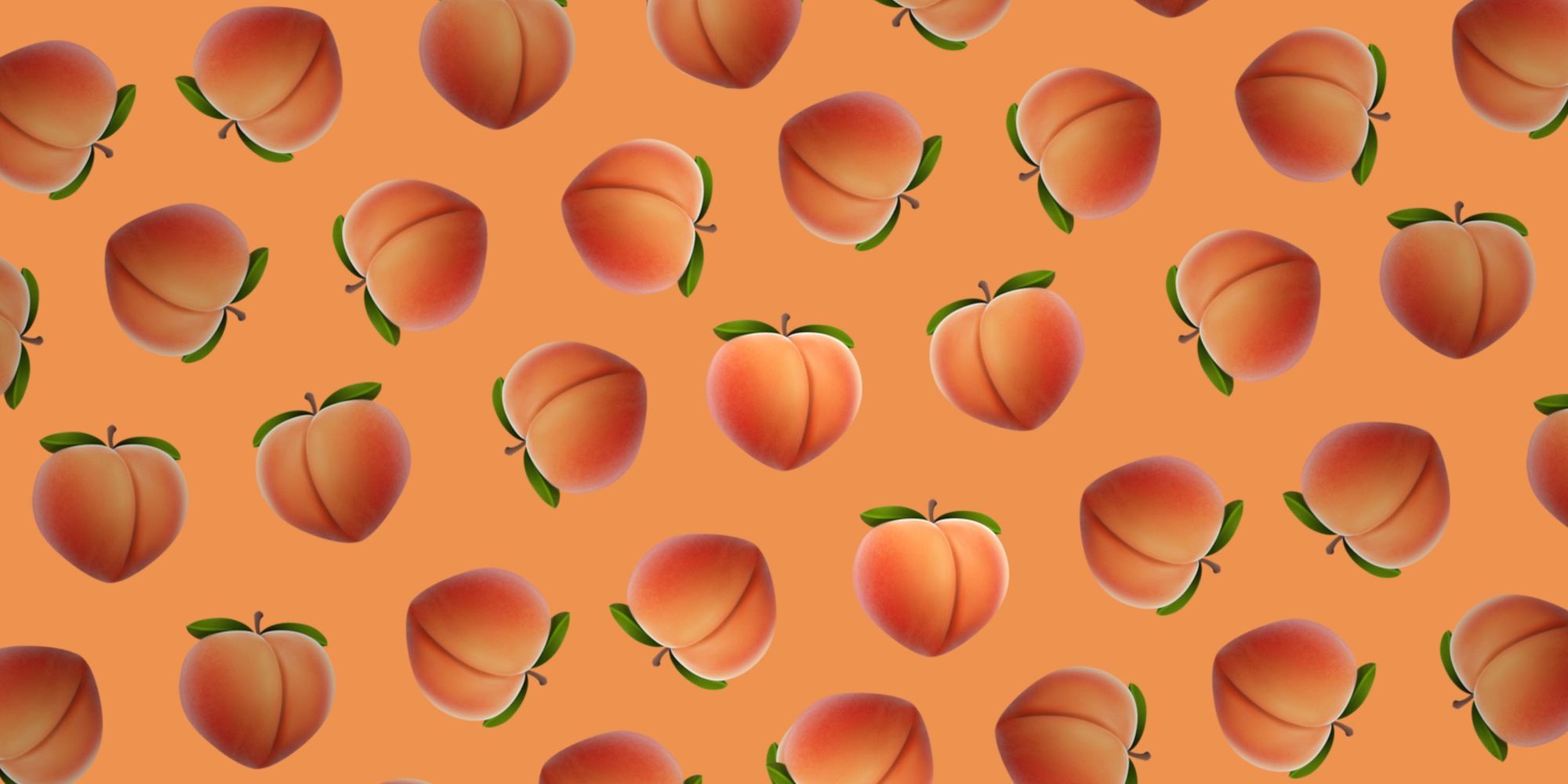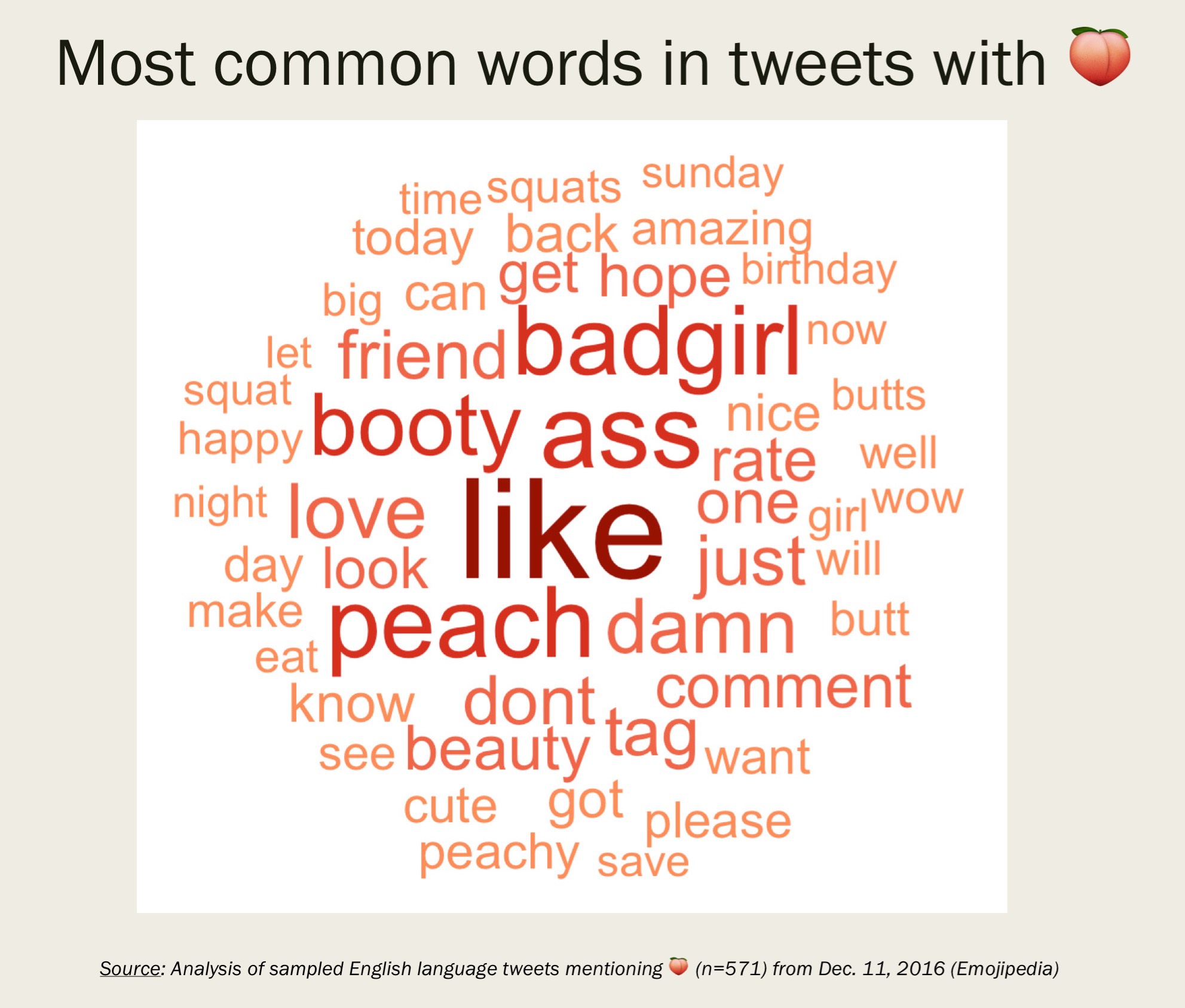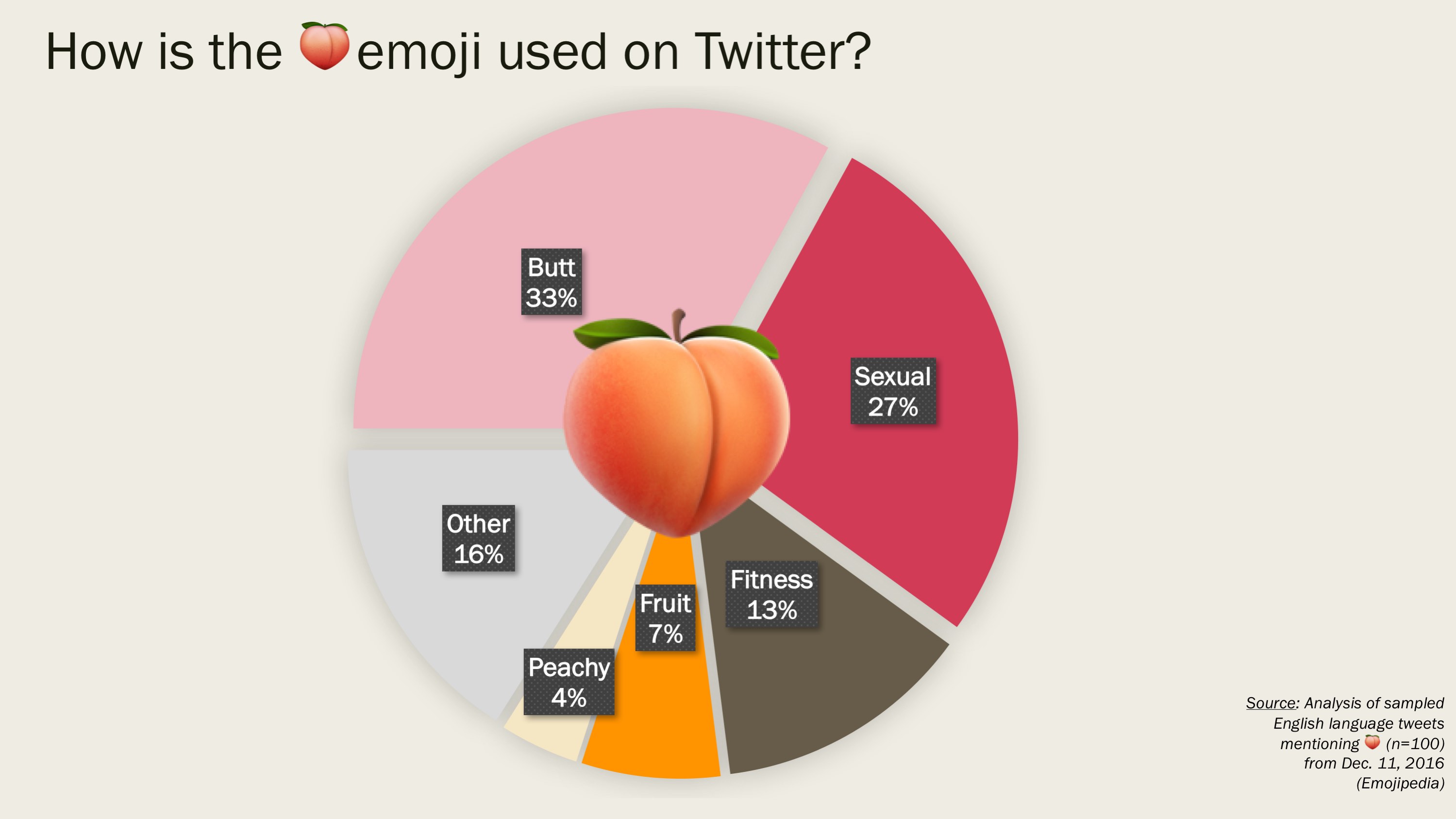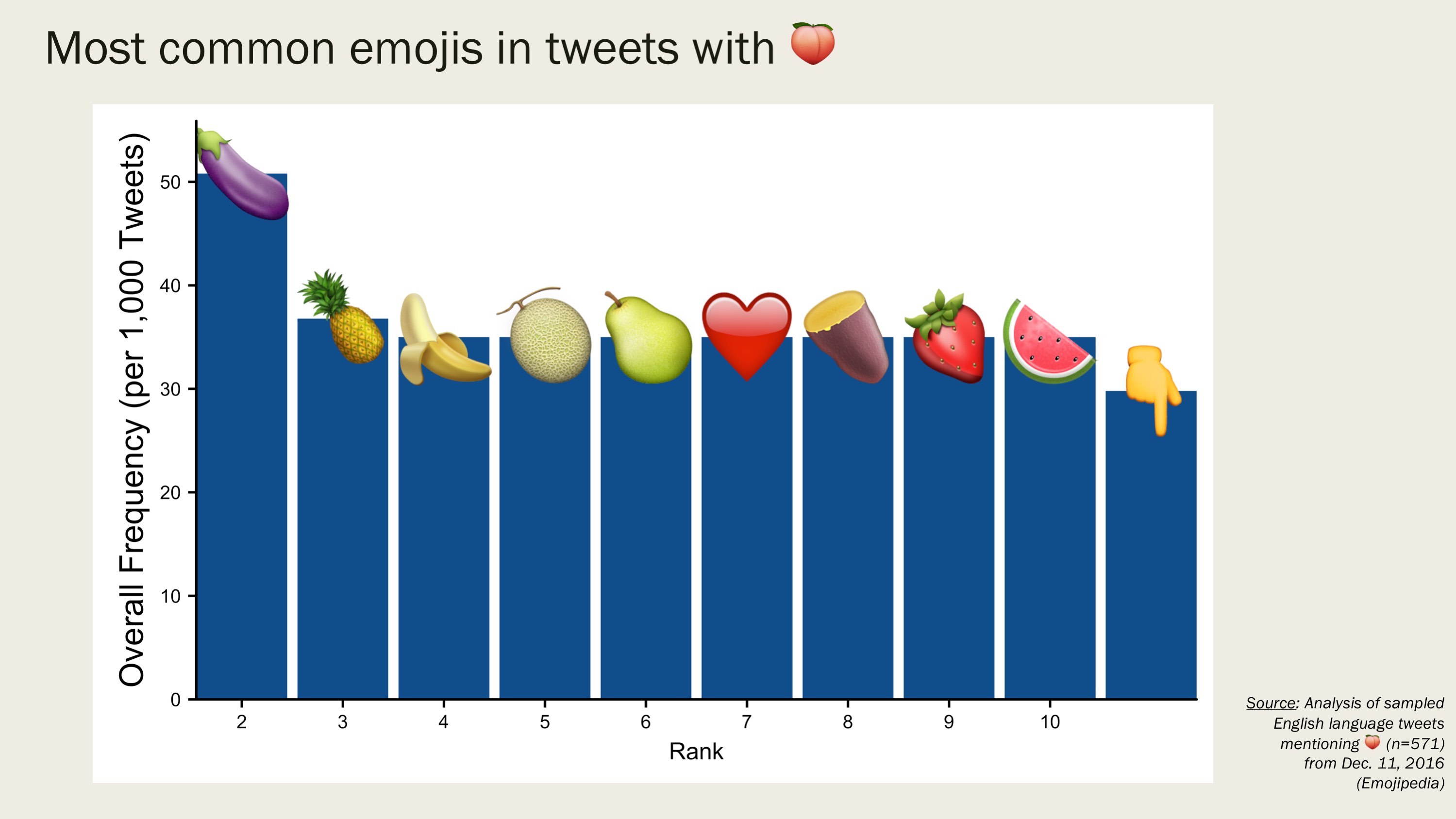How We Really Use The Peach

Apple recently came under fire for proposing a change to the 🍑 peach emoji that made it look more fruit-like and less butt-like.
“What’s happening to emojis represents the worst kind of gentrification of the internet,” charged Buzzfeed. Mashable was even more dramatic, exclaiming:
“Apple just ruined texting.”
While Apple soon retreated, the episode demonstrated the strength of people’s feelings about emojis and highlighted how much of their meaning remains personal and subjective.
🍑 Before and after #PeachButtGate pic.twitter.com/R6NlkM3G6S
— Emojipedia 📙 (@Emojipedia) November 17, 2016
We were curious what the data said on the question of fruit vs. butt so we turned to Twitter.
Last Sunday, Dec. 11, we used the streaming API to collect a random sample of real time, English-language tweets mentioning 🍑. Over 12 hours, we collected 1,618 tweets; after removing retweets, we were left with a dataset of 571 tweets.
Although this is a small sample and does not shed light on how the 🍑 emoji is used in private messaging, we still notice some interesting trends.
Words in tweets with 🍑
"Like", "ass", "peach", "badgirl", and "booty" round out the top five words in tweets with 🍑.
This suggests that 🍑 is much more likely to have a sexual connotation or be used as a shorthand for butt, than it is to refer to the actual fruit.

Can we quantify how people use the 🍑?
We took a random sample of 100 tweets from our dataset and manually inspected them to see what they meant.
We ended up classifying them into five broad buckets:
-
33% of tweets use 🍑 as a shorthand for butt, either literally (i.e. "Accidentally knocked over a lamp with my booty 🍑") or figuratively (i.e. "Finals are about to kick my 🍑" or in an especially creative usage, "Feel like pure arse 🍑").
-
27% have sexual connotations or include suggestive imagery. These are often promotional in nature (i.e. "Who loves big #booties? 🍑" or "🍑 bubble butt please follow us").
-
13% refer to fitness, usually squats (i.e. "Front squat warm ups 🍑" or "@emrata's instagram makes me want to go the gym, not eat chocolate and squat for the rest of my life 🍑").
-
Only 7% refer to the fruit, most of which refer to the flavor (i.e. "Holiday shopping on @amazon? Add on a jar of our Salted Caramel Peach 🍑") or the color ("peachy skies 🍑"). Only 1% of tweets refer literally to the physical fruit (i.e. "This weeks fruit is a peach 🍑").
-
4% use 🍑 to signify feeling peachy or generally positive (i.e. "Awwww, I'm shyyyy 🙈🍑❤️ Thankyou so much").
-
16% don't fall into any of the above categories and usually use 🍑 as a random addition to other text.

Let's take a moment to highlight the key finding here: as many as 93% of tweets with 🍑 have nothing to do with the actual peach.
This highlights the dynamic and user-determined nature of emojis-as-language.
While the peach is included in all emoji keyboards among up to 21 other fruits and vegetables, it's almost never used in a literal sense.
What other emojis do people use with the 🍑?
Here, we find that 8 of the top 10 most commonly co-occuring emojis are other fruits and vegetables.

While these make for a pretty chart, closer inspection reveals that most of these are promotional tweets from a flower bot (i.e. "Let us arrange a smile for you. 🍉🍓🍑🍉🍌🍐🍍🍠🍆").
How peachy.
Note: please feel most welcome to use any of the charts and other images in this article, with a link to this page for attribution.
